Table of Contents
ToggleIn a world where smartphones have become our trusty sidekicks and smart fridges can remind us to buy milk, technology is woven into the very fabric of daily life. It’s hard to imagine a morning routine without a quick scroll through social media or brewing coffee with a touch of a button. From the moment we wake up to the time we hit the sack, tech is there, making life easier and, let’s be honest, a lot more entertaining.
Overview Of Technology In Our Daily Life
Technology permeates everyday activities, fundamentally altering routines and interactions. Smartphones serve as the primary gateway to information, communication, and entertainment, simplifying tasks across various contexts. Smart appliances, such as robotic vacuums and programmable coffee makers, streamline household chores, allowing for better time management.
Daily activities are enriched through various applications, such as fitness trackers that monitor health metrics and personal finance apps that assist in budgeting. These tools empower individuals to make informed decisions about their health and finances. Social media platforms enable users to maintain relationships and share experiences instantaneously, fostering connections regardless of distance.
Moreover, technology enhances entertainment options, providing on-demand streaming services that cater to diverse preferences. Virtual reality and augmented reality experiences offer immersive environments, expanding recreational possibilities. Online shopping platforms save time and enhance convenience, allowing consumers to access a wide range of products from their homes.
Cybersecurity tools play a crucial role in safeguarding sensitive information, ensuring safe online experiences. Communication tools, including video conferencing software, facilitate remote work and learning, reshaping professional and educational landscapes.
Collectively, these technological advances enhance quality of life, promoting efficiency, connectivity, and accessibility.
Benefits Of Technology

Technology significantly enhances various aspects of daily life. Its impact on communication and productivity stands out, reshaping interactions and work methods.
Improved Communication
Communication tools revolutionize how individuals connect. Email allows for quick exchanges, while messaging apps enable instant interactions. Video conferencing platforms facilitate face-to-face meetings despite physical distances. Social media networks empower sharing experiences with friends and family in real time. These advancements foster relationships and maintain connections effectively, making it easier to collaborate on projects or socialize casually. The result improves both personal and professional relationships, ensuring effective communication across platforms.
Enhanced Productivity
Productivity benefits from technology through various applications and tools. Task management software streamlines project organization, while online calendars optimize scheduling. Automation of repetitive tasks saves time and reduces errors, allowing for focus on more critical activities. Cloud storage facilitates easy access to files from anywhere, enhancing collaboration among teams. Additionally, remote work solutions increase flexibility, permitting individuals to work from various locations. Such tools collectively boost efficiency, enabling users to accomplish more within shorter timeframes.
Challenges Of Technology
Technology brings significant benefits, but it also presents challenges that impact daily life. Understanding these challenges is essential for navigating the modern world effectively.
Privacy Concerns
Privacy concerns arise from the widespread use of technology. Data collection practices by companies often lead to personal information being compromised. Individuals frequently experience targeted advertising based on their online behavior, raising alarm about data misuse. Many worry about surveillance by government agencies, leading to anxiety about personal freedoms. Cybersecurity breaches can result in identity theft, causing financial and emotional distress. Stronger privacy regulations are necessary to protect users from these risks and build trust in digital platforms.
Overdependence
Overdependence on technology affects daily routines and personal interactions. People often struggle to disconnect from devices, leading to decreased face-to-face communication. A reliance on smartphones for navigation diminishes individuals’ ability to read maps or navigate independently. Constant notifications can disrupt focus, reducing productivity and increasing stress levels. Moreover, relationships may suffer as technology replaces genuine interactions with superficial connections. Balancing technology use with offline activities is crucial for maintaining mental and emotional well-being.
Impact On Daily Activities
Technology significantly alters daily activities across various sectors, including education and healthcare.
Education
Smart technology transforms learning environments. E-learning platforms enable students to access diverse resources anytime. Interactive tools, such as digital whiteboards and online quizzes, promote engagement and collaboration. Virtual classrooms connect learners and instructors, making education accessible regardless of geographical barriers. Many institutions rely on Learning Management Systems (LMS) to track progress and facilitate communication. Adaptive learning software personalizes curriculum based on individual performance, enhancing the educational experience. Online courses allow for skill development at one’s own pace, empowering lifelong learning. Moreover, educational apps introduce gamification elements, making learning enjoyable while motivating students.
Healthcare
Health technology improves patient care and accessibility. Telemedicine offers remote consultations, allowing patients to receive medical advice without travel. Wearable devices track vital signs, enabling proactive health management. Electronic Health Records (EHRs) streamline patient information sharing among healthcare providers, ensuring accurate treatment. Mobile health applications assist users in medication reminders and symptom monitoring. Virtual health platforms connect patients with specialists, increasing access to timely expertise. Many healthcare facilities employ AI for predictive analytics, enhancing decision-making processes. Overall, technology makes healthcare more efficient, improving outcomes and patient satisfaction.
Future Trends In Technology
Technology continues to evolve, influencing daily life in profound ways. Emerging innovations point towards a more interconnected and efficient future, particularly in smart homes and artificial intelligence.
Smart Homes
Smart home technology is revolutionizing how individuals interact with their living spaces. Devices like smart thermostats and security systems offer remote management, enhancing convenience and safety. Home automation platforms simplify daily routines, enabling seamless control over lighting, appliances, and entertainment systems. Voice-activated assistants, such as Amazon Alexa and Google Assistant, facilitate hands-free operation and integration of various smart devices, creating an intuitive user experience. Energy management features also contribute to sustainability, optimizing usage and reducing costs. Overall, smart homes promise increased efficiency, improved comfort, and enhanced security, making daily life increasingly automated and user-friendly.
Artificial Intelligence
Artificial intelligence is driving transformative changes across multiple sectors. AI technologies improve efficiency in everyday tasks, from virtual personal assistants streamlining schedules to advanced algorithms providing personalized recommendations. Machine learning enhances data analysis, enabling companies to make informed decisions based on consumer behavior and preferences. In healthcare, AI applications assist in diagnostics, predictive analytics, and treatment planning, ultimately improving patient outcomes. Chatbots provide customer support around the clock, enhancing user satisfaction and engagement. With its ability to learn and adapt, AI will reshape interactions, streamline processes, and enhance overall productivity across diverse areas of life.
Technology’s influence on daily life is undeniable. It’s woven into the fabric of routines and interactions, enhancing convenience and efficiency. From smart appliances to communication tools, it shapes how individuals manage their time and connect with others.
While the benefits are significant, challenges like privacy concerns and overdependence must also be acknowledged. Striking a balance between technology use and offline activities is essential for maintaining well-being.
As advancements continue to emerge, the future promises even greater integration of technology into everyday experiences. Embracing these changes while remaining mindful of their impact will lead to a more connected and fulfilling life.



